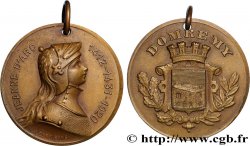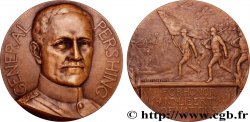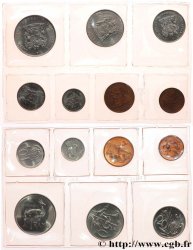fme_585278 - III REPUBLIC Médaille parlementaire, Ve législature, Gaston Guillemet
200.00 €(Approx. 226.00$ | 170.00£)
Quantity
Add to your cart

Type : Médaille parlementaire, Ve législature, Gaston Guillemet
Date: 1889
Mint name / Town : 85 - Vendée
Metal : silver
Diameter : 50,5 mm
Orientation dies : 12 h.
Engraver BOURGEOIS Léon Max (1839-1901)
Weight : 66,54 g.
Edge : lisse + corne d’abondance ARGENT
Puncheon : corne d’abondance ARGENT
Rarity : R3
Coments on the condition:
Exemplaire nettoyé présentant plusieurs coups et rayures. De l’usure sur les reliefs. Des coups sur la tranche
Obverse
Obverse legend : REPUBLIQUE - FRANÇAISE.
Obverse description : Buste drapé de la République à droite, portant un bonnet de la liberté ; derrière un rameau d’olivier ; en bas à droite MAX BOURGEOIS.
Reverse
Reverse legend : CHAMBRE DES DEPUTES - 1889 // GASTO / GUILLEMET / VENDEE.
Reverse description : Cartouche rectangulaire reposant sur une branche de chêne ; en bas à gauche MB. En trois lignes sur le cartouche : GASTON / GUILLEMET / VENDEE.
Commentary
Médaille attribuée en 1890 à Gaston Guillemet, député de la Vendée à l’occasion de la Ve législature. Il naquit le 25 mai 1851 à Fontenay-le-Comte (Vendée) et est décédé le 21 janvier 1914 à Paris. Il fut maire de Fontenay-le-Comte de 1880 à 1889, conseiller général de la Vendé een 1884 et directeur du journal “Le Patriote vendéen”. Il fut élu député le 9 mars 1890 dans le courant de la Ve législature, fonction qu’il occupa jusqu’au 31 mai 1910 après avoir été réélu lors des VIe, VIIe et IXe législatures. Il appartenait à la gauche démocratique et a été questeur à l’Assemblée nationale de 1893 à 1902. Il était spécialisé dans la fiscalité des alcools.








 Report a mistake
Report a mistake Print the page
Print the page Share my selection
Share my selection Ask a question
Ask a question Consign / sell
Consign / sell
 Full data
Full data















